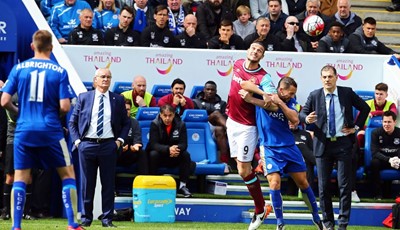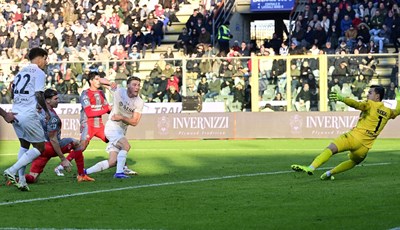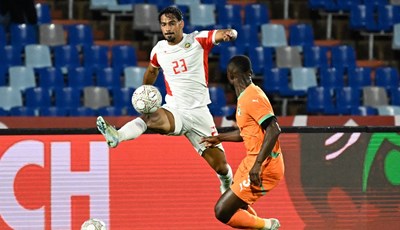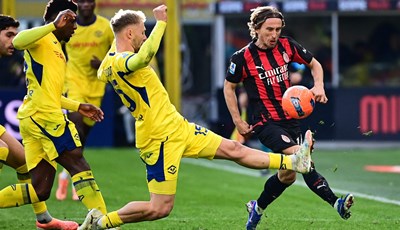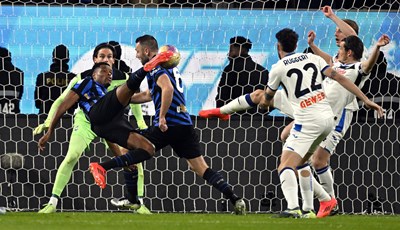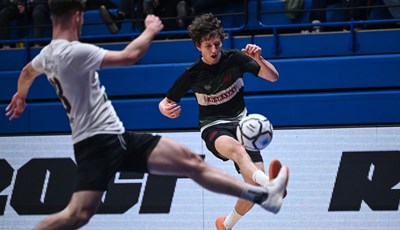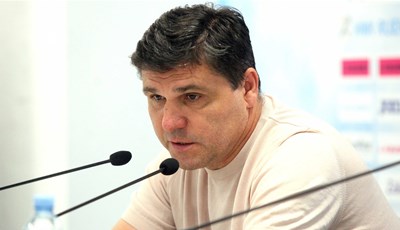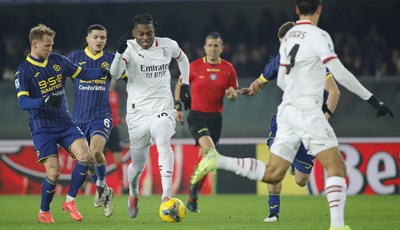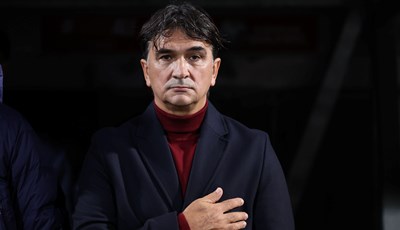Sa Soccerneta:
When the 2006 World Cup DVDs come out, producers will include a certain type of footballer. Not those revelling in their achievements in the last month, but those anxious to prevent reminders of their ineptitude or incompetence in Germany, fervently hoping their reputation isn't sullied. Here, then, to prompt their memories, is Soccernet's nightmare XI, to be managed by Sven-Goran Eriksson:
Goalkeeper: Fabien Barthez (France)
He only conceded three goals in seven games, yet Fabien Barthez can consider himself distinctly fortunate to have kept out Gregory Coupet. That he was may be a form of nepotism: Messrs Makelele, Thuram and Zidane did their old mate one last favour. In the same spirit of generosity, Barthez gifted South Korea a goal to threaten France with first-round elimination. And his consistent failure to deal with Italy's set-pieces in the final spread panic throughout the French defence.
Right back: Christian Zaccardo (Italy)
Some do more to earn a World Cup winner's medal than others. Christian Zaccardo's contribution consisted of a rather nervous performance against Ghana followed by a sliced own goal against the USA. As Gianluigi Buffon was not beaten again until the final, Zaccardo was in a select band of one for much of the tournament. Substituted in the second half in Kaiserslautern, he was not seen again on the pitch for the rest of the World Cup, surprising as it may sound.
Centre back: Khalid Boulahrouz (Holland)
Nicknamed 'the cannibal', though there is the feeling that 'the axe murderer' might be as accurate a description after an horrific challenge on Cristiano Ronaldo. The Portuguese winger, often criticised of tumbling over too easily, had no alternative when Boulahrouz embedded his studs in the Manchester United man's thigh. Remarkably, he had to wait more than an hour before becoming the second name on referee Valentin Ivanov's red card. Admittedly, Boulahrouz performed well against Argentina, but a change in his tackling technique is required: there is a distinction between determined and downright dangerous.
Centre back: Goran Gavrancic (Serbia & Montenegro)
It could be almost any member of the Serbia & Montenegro defence who, so parsimonious in qualifying, contrived to end the World Cup having conceded more often than any other side. After the first of the 10 goals they shipped - though the only one Holland scored - right-back Nenad Djordjevic was substituted in the first half, tormented by Arjen Robben. Gavrancic, however, kept his place for both the six-goal humiliation at the hands of Argentina and the 3-2 defeat to the Ivory Coast. He may not be so fortunate when Nemanja Vidic is fit again.
Left back: Roberto Carlos (Brazil)
He always had something of a dilettante's approach to defending, but Roberto Carlos' role in Brazil's World Cup exit was especially amateurish. While Thierry Henry volleyed in Zinedine Zidane's free kick, Carlos lazed on the edge of the penalty box, some 12 yards from the player he had been marking. He promptly announced his retirement from international football afterwards though Carlos Alberto Parreira, had he not picked some players on reputation alone, should have ended his Brazil career earlier. His free kicks, meanwhile, were predictably awful; just how much leeway to belt the ball over the bar can one goal in Le Tournoi in 1997 give him?
Midfield: Frank Lampard (England)
Spectators, stewards and cameramen alike knew when to duck. It was whenever, as frequently happened, Frank Lampard lined up a shot. One of the most prolific goalscoring midfielders in domestic football tried his luck 24 times and failed to find the net on each occasion. No one - not top scorer Miroslav Klose, nor any of the World Cup finalists - had more attempts. And despite this record of profligacy, he was selected to take England's first penalty in the shoot-out against Portugal. There have been hints that Lampard would be willing to take David Beckham's place as England captain; instead, he displaced the Real Madrid man - just - as the worst member of England's midfield. As a consolation prize, he can skipper this team.
Midfield: Mark van Bommel (Holland)
There comes a crossroads in every player's career. An accomplished central midfielder, Mark van Bommel faced one such: should he proceed and become a very good player, or take the path into becoming a very irritating one instead? For no logical reason, he took the latter option. An exaggeration? Obviously. But van Bommel's tournament consisted of niggling fouls and attempts to get opponents sent off when Holland required something altogether more constructive.
Midfield: Ronaldinho (Brazil)
Double World Player of the Year, Champions League and La Liga winner and the stellar talent in a Brazil team packed with global stars, Ronaldinho's case to dominate this World Cup was a strong one. Instead, he never approached his Barcelona form, failed to find the net in five matches and created little more. There are others who would be delighted to reproduce what was mediocrity for Ronaldinho - indeed, the unimpressive Emerson might have been - but so much more was expected from him. Carlos Alberto Parreira's attempts to shoehorn all his most famous players into his team hardly helped so, much like Brazil, we hand him an unnecessarily deep role in this team, lumbering him with defensive duties in a bid to stifle his creativity.
Forward: Michael Owen (England)
He moved to Newcastle last year, but appeared to have relocated to Cloud Cuckoo Land when, hopelessly out of form, Michael Owen said he was confident he would end the World Cup as top scorer. A serious knee injury brought a premature end to his tournament but, off the pace in matches and way off the target with his efforts, there was more chance of Frank Lampard winning the Golden Shoe.
Forward: Ruud van Nistelrooy (Holland)
Wayne Rooney's World Cup ended in the shame of a red card; Louis Saha's in stupidity with a second needless booking to rule him out of the final. And yet Ruud van Nistelrooy has the dubious privilege of being the biggest disappointment among the Manchester United contingent. Although he did score against the Ivory Coast, his form hardly sent suitors scrambling for their cheque books. It led manager Marco van Basten to first criticise and then drop van Nistelrooy and, in Holland's desperate scramble for an equaliser against Portugal, he remained an unused substitute, to his obvious frustration.
Forward: Adriano (Brazil)
Modelling yourself on Ronaldo is not a failsafe policy. Adriano seemed intent on matching his strike partner inch-for-inch with his waistline. They had identical wardrobes, too - the other Brazil kits were made to smaller dimensions. But as a partnership, they failed to gel, with a lack of movement the prime cause. Ronaldo at least managed a brace against Japan to claim Gerd Muller's record for World Cup goals; Adriano's tournament ended with him a substitute. But despite a host of underachieving strikers - including Pauleta, Mateja Kezman, Raul and Poland's apology for a forward line - he earns a place in this team.
“Kam hit this tight end SO HARD, I swear I saw that TE’s soul leave Qwest Field right on that 35 yard line.”
